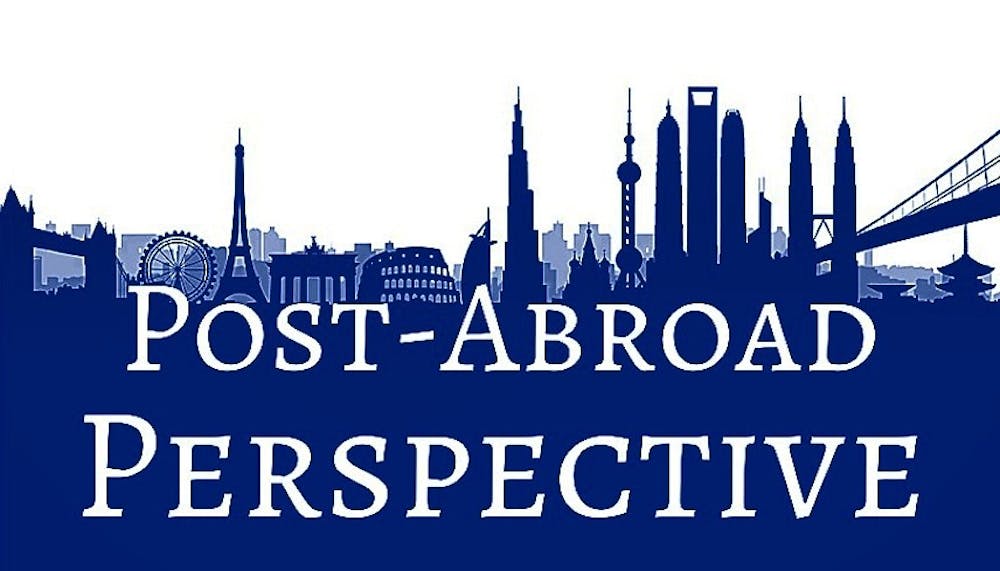Here’s the thing, folks.
We’ve all heard the infamous catch phrase that seems to follow people back from their oversea adventures. “Abroad changed me.” We’ve all made fun of it and of those who announce it. Did it, really? Did it really change you?
Well, I'm here to say that, yes, yes it did. It changed everything.
And that’s probably going to make some of you roll your eyes. No worries, roll away. But let me tell you a little bit about my experience and why abroad changed everything for me.
Last semester I lived on three different continents.
I studied abroad through the International Honors Program, an organization that uses experiential learning to critically examine a specific global issue. My track, Health and Community, took me to Vietnam, South Africa and Argentina.
Each day looked different, and we spent little time in actual class. Instead we practiced qualitative anthropology field research, hosted discussion groups with community members and heard from countless guest speakers. We lived in home-stays, witnessed the beauty of community firsthand and engaged with our curricula in unique and unexpected ways.
And we learned. Everywhere. Whether it be on the back of a motorbike in Hanoi, while talking to a bush doctor outside of Cape Town or at a political rally in Buenos Aires. Learning was not confined to the four walls of a university classroom.
Of course, my semester abroad differed from most. However, if you can do more than just let the abroad experiences wash over you, regardless of where you are, you will realize something.
Up rises this feeling within you, this unconscious tug in the margins of your mind. Despite attempts to reject it, to stuff it back into the box from which it escaped, it will insist on settling in to stay. It’s curiously silent, this feeling, yet its presence demands attention.
Discomfort.
A sensation with which I am all too familiar. Nearly everything about last semester was uncomfortable.
Enjoy what you're reading?
Signup for our newsletter
My bed in Vietnam, which was a pallet of solid wood. Discomfort.
My expression when I realized I had accidentally offended my devout Muslim host family in South Africa by putting my sports bra out on the line to dry. Discomfort.
What I felt when realizing in Argentina that my “Americanness” does not always make me more welcomed, nor should it. Discomfort.
We observe whatever is making us feel this discomfort, and declare with certainty, “This is strange.”
You can stop there if you want. You can take note of the strangeness and be on your merry way.
Or, you can lean into the discomfort and ask yourself, “But… why?” Why does this make me feel uncomfortable? Why do we subjectively categorize these things as “strange?”
Why do I find it hard to accept the legitimacy of a traditional medicine hospital in Vietnam, despite having studied the value of holistic healing at UR?
Why am I boggled by the interfaith solidarity I witnessed in Cape Town? Shouldn’t loving our neighbors be the norm, regardless of their religious affiliations?
Why is it that I'm so comfortable studying the social determinants of health within the confines of a Jepson classroom, but, when I witness health inequities firsthand, I am appalled and astounded and uncomfortable? Why? Why? ...
Through this inquiry, we come to recognize that our experiences and interactions abroad can act as a distorting mirror, reflecting back to us images of own lives as we have never seen them before. Things that were once so familiar and normal begin to look warped.
Our stances, our cultural values, our health-care system, our American identities – they all look a little different now. As we stand looking out into this foreign land, we find that we are not so much learning about the strangeness of our host countries, but about the strangeness of the place we call home.
Has my perspective shifted after studying abroad? Yep. Did many things change in my life upon my return to UR? Oh, you betcha. But, did abroad really change me? Hell yes, it did! If it didn’t change you, you may have missed the entire point.
Contact contributor Bailey Gillespy at bailey.gillespy@richmond.edu.
Support independent student media
You can make a tax-deductible donation by clicking the button below, which takes you to our secure PayPal account. The page is set up to receive contributions in whatever amount you designate. We look forward to using the money we raise to further our mission of providing honest and accurate information to students, faculty, staff, alumni and others in the general public.
Donate Now



